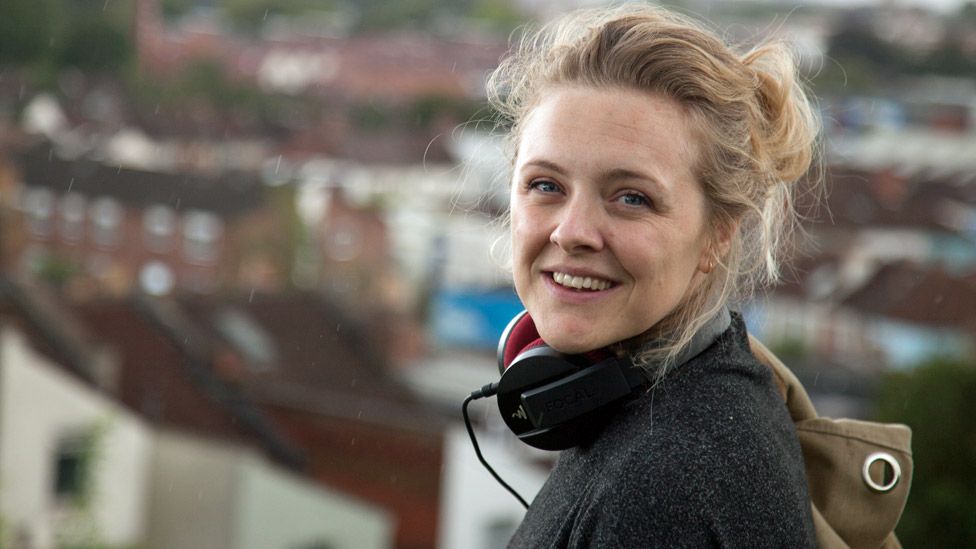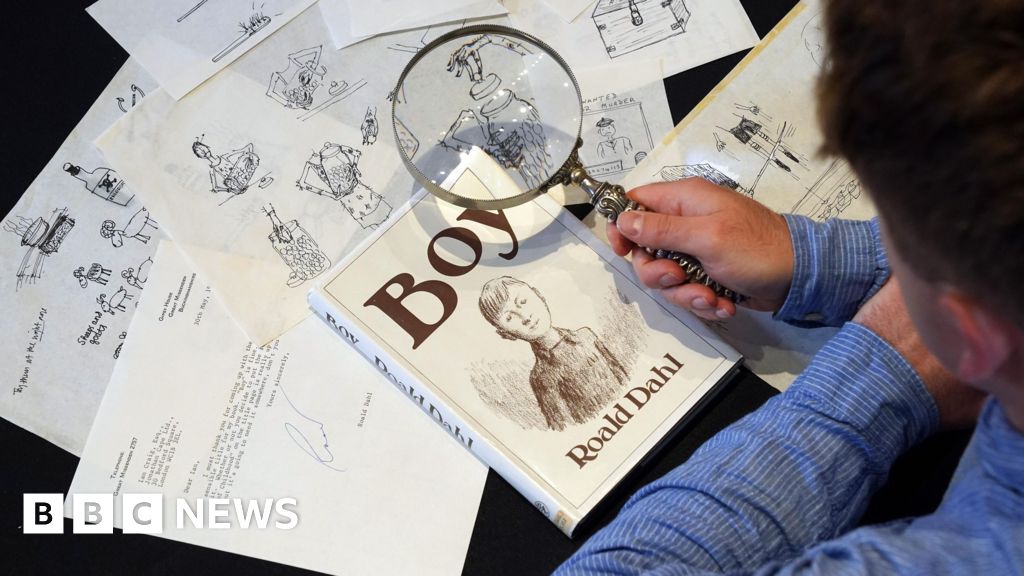ARTICLE AD BOX
 Image source, Nadege Laici
Image source, Nadege Laici
Polly Weston: "It's the brilliant thing about real life, that you don't know where it's going to take you."
By Ian Youngs
Entertainment & arts reporter
A radio presenter has spent five years visiting places in the UK at random - literally - and uncovering fascinating, unexpected and moving stories.
Each episode of Polly Weston's BBC Radio 4 series The Patch starts with a random postcode generator. An actual postcode lottery to decide where she must go.
She has no say in where she ends up, but once there it's up to her to dig out compelling characters, secrets and stories.
"It's always really scary, especially if you've made no contact at all and then you just walk into a place," the producer and presenter says.
"There's a moment where you get somewhere and you think, all right, I'm going to do this. It's like jumping off the high board at the swimming pool.
"You go in and go, 'Hi I'm Polly, I'm from the BBC and this is going to sound very odd, but I get given random postcodes and I've just been given this one. And so I'm here!
"And then they look at you and go, 'Right… what do you want to know?'
"And you go, 'I don't know!'"
Private jets
These leaps into the unknown become journeys of discovery. It turns out there really are stories everywhere if you scratch beneath the surface. And the stories, like the locations, vary wildly.
So far, her destinations have ranged from the City of London to a remote slice of the Scottish Highlands and a mysterious RAF base in Norfolk.
For the first episode of the new series, which starts on Thursday, the postcode generator plucked out the address of the UK's only dedicated airport for private jets - in Farnborough, Hampshire.
That led Weston to delve into the realm of private jet charter brokers. "It's definitely taken me into a world that I knew absolutely nothing about. And it's very interesting."
Image source, Paul Britchford
Image caption,The new series visits the We'll Meet Again museum in Lincolnshire
The second episode's Lincolnshire postcode contained a World War Two museum and an open prison.
"Someone was captured on the day that I was there. He'd been on the run for five months and he was caught when I was on that first visit."
The third landed her in a Dorset suburb that's normally quiet - but, bizarrely, 13 cars were set alight on one night in May. What went on there?
Sometimes the story in her patch is obvious from the outset. Mostly, she starts at the best place to put her ear to the ground - usually a pub or a café.
"One time I went to a pet shop. That was a fluke but it did actually turn out to be a really good bet because it's not what you'd expect to be the hub of the community."
She continues: "The first thing is looking for the setting. And then it's the characters you're drawn to. So often, you walk into a place and you think, I've never been anywhere like this before. And you think, OK, I'll stay here then."
Image source, Jon Dornom
Image caption,Weston investigated the mystery of vanishing crabs in Devon in an early episode
Armed with quiet compassion and journalistic tenacity, the Bristol-based programme-maker invariably wins over the people she meets and rarely fails to get to the bottom of what's going on.
There are often surprising twists, and she can end up a long way from where she started out.
A boatyard in Lowestoft, Suffolk, hid the incredible tale of super-fast boats that were first built there and are still used by drug runners to evade authorities off the coast of Spain.
"If I'd have tried to have found that story, I couldn't have," she says. "There's no way you could have fabricated that. It's the brilliant thing about real life, that you don't know where it's going to take you."
It's also taken her to a pristine but unused "ghost golf course" in Perthshire, and an interview with a member of the previously media-shy billionaire family who own it.
And it's taken her to an RAF base with strange giant domes, and eventually to the former head of the US Space Force, who revealed what they are for.
They are illuminating insights into interesting corners of our country. But the most memorable episodes are those in which Weston draws us into ordinary lives.
Sea shanties
On a remote peninsula in Lancashire, we met Margaret and Trevor, who were forced to move away from their beloved community and local sea shanty group after Trevor had a stroke.
He could no longer sing the shanties he had written, and most had never been recorded - until Weston captured Trevor's voice when his voice had recovered.
Elsewhere, in the pet shop, she heard about a spate of deaths caused by fake prescription drugs in Aberdeen. As the episode went on, the focus narrowed to follow Stuart, a dog owner who was using them.
"The ones that that stick [with me] are the ones where you've met individuals who you've warmed to or got to understand, and then something in their experience tells you something bigger about the world," Weston says.
"It's the opposite of going in and going, 'Here's the story, who am I going to find to tell it?' It's saying, 'Here's a person I want to listen to, here's a person I want to spend time with, and here's what their story is teaching me about the world.'"
Many of the random places she's visited aren't often represented in the media. Or if they are, it's by journalists who think they already know the story.
So what has she learned about the country?
'Always surprising'
"One thing is, we're an island," Weston replies. "You would not believe how often I end up somewhere that is water based. I know that's not what you meant!" Not really.
"The other thing is... I try not to make too many assumptions about anywhere now. Because people and places are always surprising, wherever you are."
She recalls recording an early episode in south-west Wales and "suddenly grasping the way that this country is divided in a way that I hadn't [before]".
Weston pauses to choose her words carefully. "There is a tendency, in the way that we talk about the divisions in this country, to sometimes talk about places as though they don't understand things in a way, or they're misguided, and that's the reason that they hold the views that they do.
"And my personal experience has been that it's the opposite. Actually, the perspectives that people have on the world and the way it is... there are reasons for them that are important to understand."
A random approach, it turns out, is not a bad way to do that.
The new series of The Patch is on Radio 4 at 09:00 and 21:30 BST on Thursdays and on BBC Sounds.

 1 year ago
38
1 year ago
38








 English (US) ·
English (US) ·